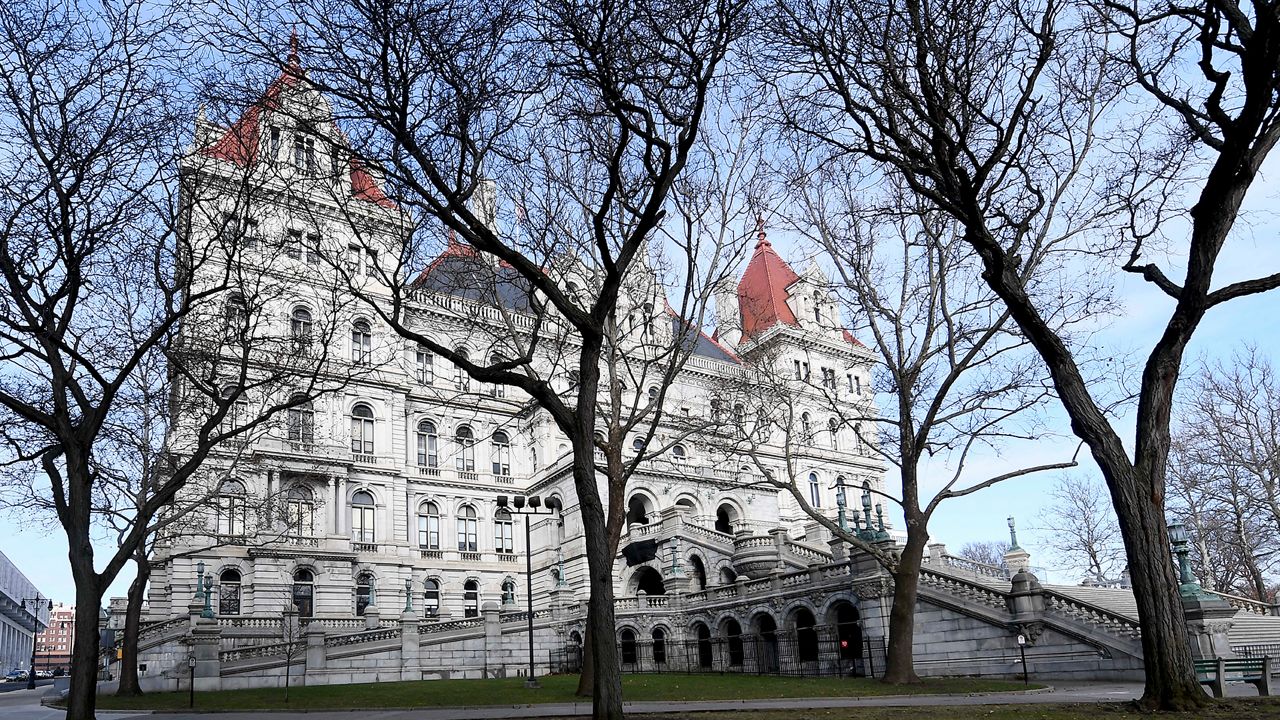Considering Tuesday’s dire warning from the State Comptroller, which sets state revenue projections between $4 and $7 billion lower than it was when the Executive Budget was released, lawmakers have very few options when it comes to crafting a budget by April 1.
They really only have 3 options since a budget extender is considered by several people I have spoken with to be “useless.”
The Empire Center’s E.J. McMahon asks, “What’s the point (of an extender)? It’s like saying we’re going to have a printing press in the basement.”
Additionally, lawmakers still have to find $2.5 billion in Medicaid savings, so an extender would just delay the pain, not that the state is unfamiliar with that strategy.
Here are the realistic options lawmakers are left with:
-With the legislature’s approval, the Governor could resubmit his budget using the Comptroller’s new revenue projections (and likely very little policy).
-Lawmakers could approve a budget based on the Executive spending plan submitted in January and give the Governor much greater flexibility when it comes to expenditures and cuts.
-They could do either of the above along with raising taxes.
New York State United Teachers and other groups including the Fiscal Policy Institute are urging the Governor to raise taxes on the very wealthy.
“As this crisis unfolds, we are continuing to advocate for the resources needed to ensure children receive the high-quality education they deserve and that our communities can continue to access the wrap around services they need,” NYSUT President Andy Pallotta stated in an email Wednesday.
But the Governor has repeatedly said he doesn’t want to raise taxes. And he’s not alone in that assessment.
“We don’t think it’s time to raise taxes, particularly with the SALT cap,” explains David Friedfel of the Citizens Budget Commission, who has been an advocate of bolstering the state’s rainy day fund.
Both McMahon and Friedfel are old hands at tight budgets, but this is unchartered territory for them.
“This is an almost overnight version of the financial crisis of 2007,” says McMahon.
“You have a worldwide pandemic that’s shutting down everything so it’s hard to get a handle on long term implications,” says Friedfel.
As lawmakers determine which kind of budget they want to pursue, there are a few other factors they need to consider: the costs to the state of the Coronavirus pandemic; any additional federal revenue the state receives; and (that very scary possibility) that revenues might actually come in lower than the Comptroller estimated.
At least the Governor has been clear about what he wants, says McMahon.
“The Governor is saying in not so many words, ‘Pass a budget and give me the flexibility to do what’s needed’”.
One thing McMahon thinks is needed? A cut to school aid.
Governor Cuomo added $630 million to schools in his January budget, plus $200 million in a fiscal stabilization fund.
McMahon argues that while sales taxes have taken an enormous hit (“local governments have been absolutely clobbered”) schools are among the least affected by local conditions, so they should be able to sustain a state aid cut, or at least a cut to the $630 million dollars the Governor added to education in his budget.
He points to New York City Comptroller Scott Stringer’s assessment that Mayor Bill de Blasio will need to cut $3.2 billion from his budget.
“All government receipts are being hit,” explains McMahon. “We are basically losing the spring quarter of sales tax.”
McMahon says schools must prepare to freeze hiring, cut discretionary spending, and freeze salaries.
Pallotta of NYSUT disagrees.
“This crisis has highlighted the vital role that our schools play in our communities. They provide meals, they provide care for the needs of children, they provide mental health services — and that’s just the tip of the iceberg.”
School finance expert Dr. Rick Timbs of the Statewide School Finance Consortium says he hasn’t heard anything from lawmakers or the State Department of Education about what they intend to do with the State budget, but he’s expecting the worst.
“Think about it. There will likely be massive layoffs, massive cuts,” says Timbs, who is a former BOCES Superintendent. “I don’t know how districts are going to deal with this.”
There is one thing Timbs is certain about: Superintendents will be scrambling.
“If you’re a superintendent, and your budget is all set, and the Governor says ‘I’m cutting school aid’ then I have to redo my whole budget”.
The greater issue, according to Timbs, is that SED has been gutted over the last 10 years so there are far fewer people in place to help get a handle on any issues this pandemic will likely bring to the forefront, including testing, unemployment insurance and layoffs.
Whatever the legislature decides will have far-reaching implications. And that’s just one of many, many unknowns.
McMahon’s eloquence belies the enormity of his words.
“This is a crisis of the highest order that leads into a huge black tunnel that leads we know not where.”
